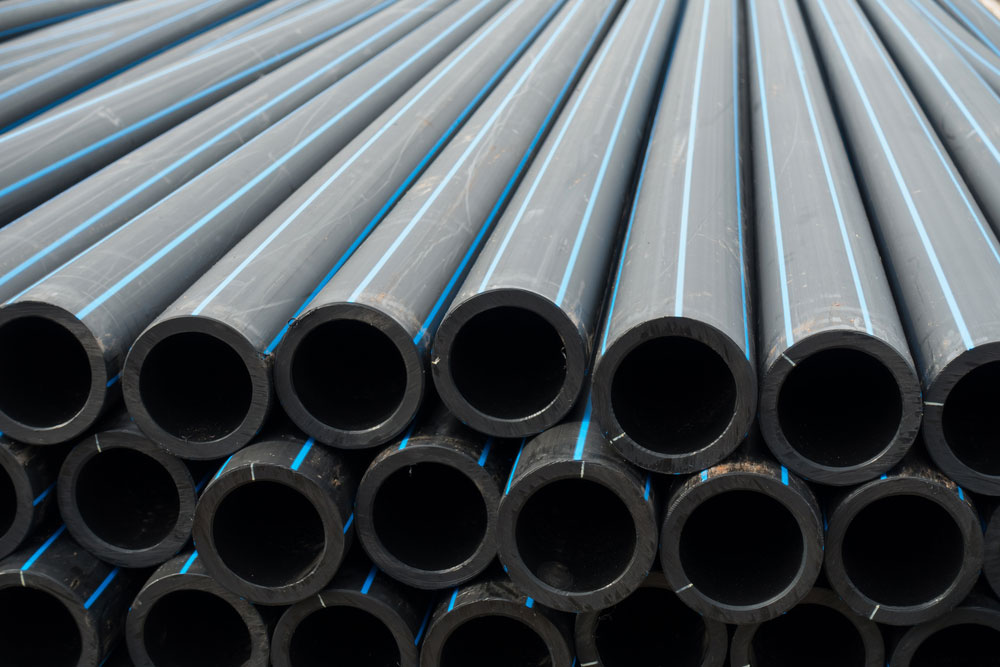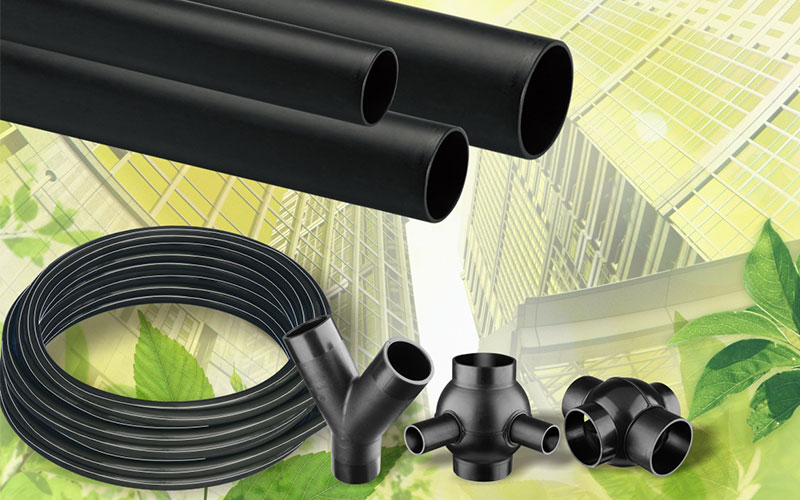The Complete Guide to Pipe Manufacturing Midland TX for Industrial Needs
Comprehending the Key Advantages of HDPE Pipeline for Water and Wastewater Administration
Making use of HDPE pipeline in water and wastewater management presents countless advantages that warrant factor to consider. Its phenomenal durability and lengthy life expectancy make it a recommended option for several jobs. Furthermore, the product's resistance to corrosion and chemical damage improves its dependability in various atmospheres. Nevertheless, the benefits expand past just long life and resistance. Exploring its cost-effectiveness and ecological influence reveals even more compelling factors for its widespread fostering in modern-day framework
Outstanding Resilience and Longevity

HDPE pipe stands apart for its exceptional longevity and long life, making it a favored choice in water monitoring systems. Created from high-density polyethylene, these pipelines can withstand considerable pressure and anxiety, ensuring reputable performance in time. Their durable nature allows them to sustain severe environmental conditions, consisting of temperature variations and dirt motions, which can trigger other materials to fail.
The life expectancy of HDPE pipelines usually surpasses 50 years, giving an economical option for communities and sectors alike. Additionally, the product's lightweight residential or commercial properties simplify installation, lowering labor prices and durations. This longevity reduces the requirement for regular repairs or replacements, better enhancing its economic appeal.
In water monitoring applications, the integrity of HDPE pipelines suggests fewer disruptions and improved solution continuity, making them integral to lasting facilities growth. The combination of durability and durability strengthens HDPE's function as a foundation in effective water administration options.

Resistance to Deterioration and Chemical Damage
While numerous products catch rust and chemical damage over time, HDPE pipes display impressive resistance, making them optimal for different water monitoring applications. This durability comes from the molecular framework of high-density polyethylene, which is naturally non-reactive and does not wear away like metals or deteriorate from exposure to rough chemicals. As an outcome, HDPE is highly effective in environments with aggressive materials, such as wastewater systems that may include acids, bases, and natural solvents.
Additionally, HDPE pipes can stand up to environmental variables such as dirt level of acidity and saline conditions, additionally enhancing their viability for varied applications (American Plastics HDPE Pipe for Oilfield). Their ability to keep structural stability over time minimizes the threat of leaks and failures, which is vital in guaranteeing the security and integrity of water distribution and wastewater management systems. As a result, the resistance to deterioration and chemical damages significantly adds to the general performance and durability of HDPE piping options
Cost-Effectiveness and Economic Benefits
When considering the economic effects of water management systems, the cost-effectiveness of HDPE pipes becomes apparent. These pipes offer reduced installation and maintenance costs compared to traditional materials like metal or concrete. Their light-weight nature streamlines transportation and installment, leading to decreased labor expenses. Furthermore, HDPE pipes display a lengthy life expectancy, commonly surpassing half a century, which equates to fewer substitutes and long-lasting cost savings.
Moreover, the resistance of HDPE to rust and chemical damage decreases the need for costly repair services and substitutes. The pipes additionally support reliable water flow, decreasing power costs linked with pumping systems. By mitigating leaks and water loss, HDPE pipelines add to considerable economic advantages for towns and industries alike. Overall, the first financial investment in HDPE piping can produce considerable monetary returns over the life-span of the water management system, making it a prudent choice for sustainable facilities advancement.
Environmental Sustainability and Reduced Impact

Versatility and Flexibility in Installment
As a result of their special properties, HDPE pipes supply exceptional adaptability and flexibility in setup, making them suitable for a vast array of applications. Their lightweight nature permits easier handling and transportation, decreasing labor expenses and installment time. HDPE pipelines can be bent and formed to fit numerous surfaces and task requirements, which is specifically advantageous in challenging atmospheres.
Furthermore, their resistance to corrosion and chemical damages enables for setup in diverse settings without the need for specialized safety finishes. The capacity to fuse joints creates a continual, leak-free system, enhancing the general honesty and dependability of the setup. HDPE's versatility also suits ground movement, decreasing the threat of damage in areas susceptible to moving soil. On the anchor whole, these attributes make HDPE pipes not only versatile but also a preferred choice for water and wastewater management systems.
Often Asked Questions
How Does HDPE Pipeline Compare to PVC in Water Monitoring Applications?
HDPE pipe uses remarkable adaptability, resistance to rust, and durability compared to PVC. Its lighter weight helps with much easier installment, while its long life expectancy decreases substitute prices, making HDPE a recommended option in water management applications.
What Is the Life-span of HDPE Water Lines Under Normal Conditions?
Under normal problems, HDPE pipes can have a life expectancy varying from 50 to 100 years. Their sturdiness and resistance to corrosion add to their long-term performance in various applications, making them a trusted option for facilities.
Are HDPE Water Lines Recyclable After Their Life Span?
Yes, HDPE pipes are recyclable after their life span. American Plastics HDPE Pipe for Oilfield. They can be refined and repurposed right into brand-new products, substantially reducing environmental influence and promoting sustainability within the industry, making them an environment-friendly choice for piping solutions
What Is the Setup Process for HDPE Pipeline?
The installation clogged sewer line process for HDPE pipelines entails site prep work, trenching, pipe blend or mechanical signing up with, backfilling, and pressure testing. Appropriate strategies guarantee a resilient and efficient system for transporting water and wastewater efficiently.
Can HDPE Pipeline Be Utilized for Both Potable and Non-Potable Water Systems?
Yes, HDPE pipelines can be made use of for both potable and non-potable water supply. Their adaptability, durability, and resistance to deterioration make them appropriate for different applications, ensuring safe and reliable transport of water in different contexts.